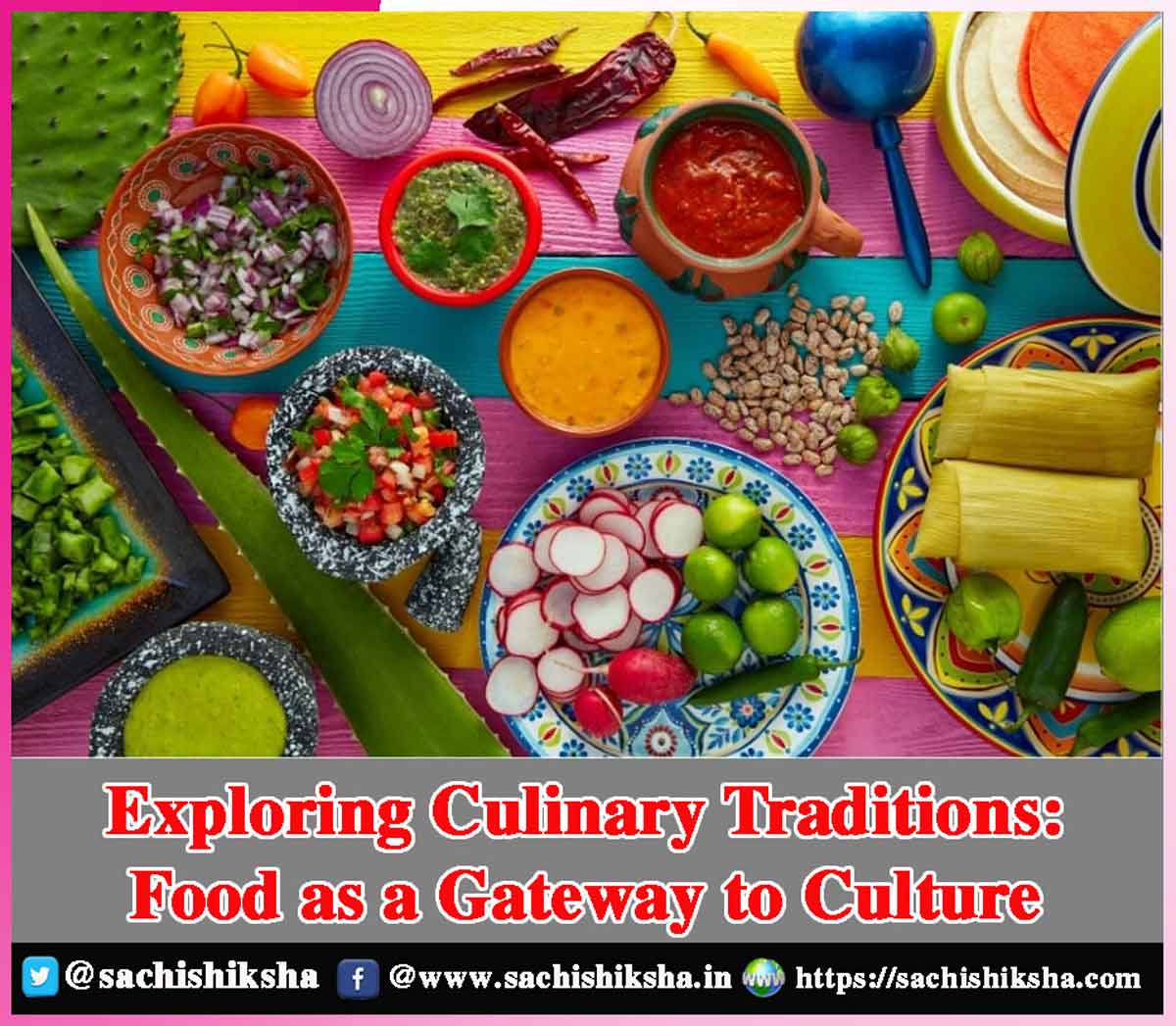Exploring Culinary Traditions: Food as a Gateway to Culture
Introduction : Since time immemorial food has been one of the most essential and significant aspects of different cultures and traditions. In India, we rightly say that there is no better way to someone’s heart than food. Cooking food for someone is like showering love and warmth upon him. Thus, food is not just a mere means to consume, but a wholesome experience to connect with people.
It evokes emotions and feelings. It generates happiness and love. It is considered a sacred practice in our culture to feed and cook. We observe countless different types of dishes in our own country. Imagine the rich diversity of food practices and traditions across the globe. And it’s not stagnant. The best part is culinary culture and traditions keep growing and are still expanding. Experimentation and the urge for newer human experience don’t stop.
Table of Contents
Diversity in Food Practices & Traditions

Aspects of Culinary Traditions
Culinary traditions reflect various values, belief systems, and practices of a particular community, making them an essential aspect of their heritage. By exploring culinary traditions, we can gain insight and know much more about the daily lives, habits, lifestyles, and celebrations of people from diverse backgrounds.
Ability to Evoke Emotions & Sense of Belongingness:
One of the most significant aspects of culinary traditions is their ability to evoke emotions and create a sense of belonging. The aromas, flavours, and textures of traditional dishes can transport us to a specific time and place, conjuring memories and emotions. This emotional connection to food is a powerful tool for building bridges between cultures. Moreover, food has played a crucial role in shaping cultural and traditional identities throughout history. Many a time we see how food habits and culinary traditions of different communities are interlinked. This shows the very interconnectedness and oneness of communities that diverged into separate identities of their own. Hence, it is a paramount aspect to study history and society from the ancient to the modern times.
Rich Flavour & Aroma of Indian Cuisines:

Being such a large and diverse country we don’t have just interstate diversity but also intrastate when it comes to food and practices related to it. Let’s see for example-
- Punjab – Sarson Ka Saag with Makki Ki Roti
– Significance: Reflects the state’s agricultural heritage and love for hearty and comforting food.
- Gujarat – Gujarati Thali
– Significance: Showcases the state’s diverse culinary influences and emphasis on vegetarianism.
- Maharashtra – Vada Pav
– Significance: Represents the state’s street food culture and love for snacks.
- Tamil Nadu – Idli Sambar
– Significance: Reflects the state’s traditional breakfast culture and emphasis on simple and wholesome food.
- Kerala – Sadya
– Significance: Showcases the state’s traditional feast culture and emphasis on local ingredients.
- Andhra Pradesh – Hyderabadi Biryani (Mixed rice dish with vegetables)
– Significance: Represents the state’s culinary heritage, influenced by its historical trade and cultural exchange.
- Karnataka – Bisi Bele Bath
– Significance: Embodies the state’s love for simple, comforting food and emphasis on local ingredients.
- Bihar – Litti Chokha
– Significance: Represents the state’s traditional street food culture and emphasis on simple, wholesome ingredients.
These dishes carry a lot of cultural and historical significance, making them an integral part of India’s diverse culinary landscape. Different cultures and traditions across the globe tell us about the geography and the society of the place. In the sense that whatever is found in sufficiency at that location becomes part of the diet. This, in turn, also tells us about the soil, agricultural richness, precipitation and society.
However, such categorization is becoming redundant day by day because the world is becoming smaller as a result of technology and globalization. So many food crops that are not a natural part of a country’s soil can be grown now with better technology and science. People want to explore more than just what they already have in their plates. New restaurants and cafes have foods and dishes from so many other countries and that too as authentic as possible. They also try to offer the same ambience and atmosphere for us to get that experience completely.
Integral Part of Spiritual Practices
Food has also been an integral part of spiritual practices across cultures and religions, serving as a means to connect with the divine. By being a part of offerings to the divine, aiding communal bonding and boosting harmony, as a part of rituals and ceremonies. Fasting is a spiritual practice in many religions, promoting self-discipline, reflection, and purification. This has been observed in various cultures showing the interconnectedness of the world.
Shapes Our Cultural Identity














































